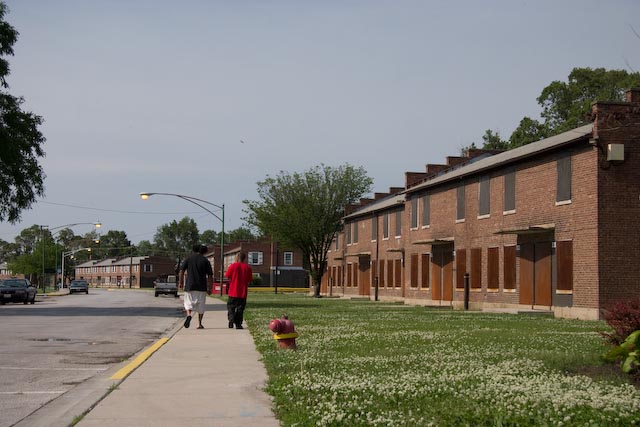Chicago’s segregated history has led to unequal outcomes for Black communities across the city. For far too long we’ve known what it’s like to feel forgotten. Though 2020 has only exposed what I’ve known for decades—unequal health outcomes in African-American neighborhoods, racial profiling by police—this year provides a unique opportunity to achieve lasting progress for communities in the far South Side. Out of all the policies proposed by elected officials and community activists, there’s one that can directly benefit the residents of Altgeld Gardens: a solar farm.
Solar is a clean, efficient, and affordable source of energy that provides electricity to communities that need it most. Unlike fossil fuels, solar doesn’t produce methane and other pollutants. As a lifelong community advocate from Altgeld, I know how devastating these toxic chemicals can be for Black families. Too many have lost loved ones because of the pollution harming our community. Transitioning away from fossil fuels will prevent future residents from needlessly dying from their effects. There are also financial benefits to solar energy. Through tax credits, solar can provide significant savings for property owners and renters in low-income communities. Besides these benefits, solar energy is an excellent opportunity to hire locally and spur job growth. Training programs in solar installation and electrical apprenticeships give residents the dignity of a well-paying job while also supporting the community’s technical needs for decades to come.
With all of the benefits from solar energy, it’s exciting to know that a solar farm is in the works. Altgeld’s planned solar farm is expected to take up ten acres of undeveloped land in the neighborhood. According to a feasibility study conducted by Cook County in coordination with Chicago Housing Authority (CHA), it would consist of 6,100 panels with enough energy to power 360 homes every year. The CHA is expected to use forty percent of the panels installed for residents in Altgeld while the remaining sixty percent will be leased out to other residents in the community and surrounding CHA facilities. Customers will not have to pay an upfront cost, thanks to the Illinois Solar for All initiative to finance community led programs that was passed by the Illinois state legislature in 2016.
For us, bringing a solar farm to Altgeld Gardens isn’t just an environmental or economic issue, but a call for racial justice. Credits from the energy used in the solar farm will be reinvested into the community. This is a great chance to address some critical issues on the disparity of outcomes and resources in Altgeld. Throughout the summer, People for Community Recovery (PCR) has been asking residents about what they would like to see. From a survey of nearly ninety participants, fifty-eight percent said they wanted to see a grocery store in the community. Altgeld currently doesn’t have one, even though there’s ample space to construct one. Besides a grocery store, residents also pointed to a lack of child programs and job training. A solar farm could produce short-term construction jobs while also creating lucrative technical jobs for future solar infrastructure projects. Energy credits can be used to create programs that support job training, while also investing in the future generation by supporting activities that motivate and inspire kids to be change makers. The potential benefits of a solar farm aren’t confined to saving money and being environmentally friendly, but also seeing nutritional food options return to Altgeld, training residents to have marketable skills in the solar industry, and cultivating a new generation of leaders.
For all of these possibilities, however, progress has been slow. While we know the solar farm won’t be built overnight, the Chicago Housing Authority must continue the work done over the past several years. A feasibility study was completed three years ago. Illinois Solar for All is up and running. PCR has organized and educated residents about the benefits of a solar farm. The clear next step is for CHA to continue discussions with residents and create a fair request for proposals (RFP) for solar developers. Our two demands to make the RFP inclusive are to encourage hiring locally while also keeping the community engaged and informed throughout the entire project development. The RFP is important because it allows organizations to bid on the proposal and finally start developing the solar farm. Defining it on terms beneficial to our residents is crucial for any lasting change toward community resilience and sustainability. We want to continue to work with CHA, and now is the time for CHA to follow through on their part.
Cheryl Johnson is executive director of People for Community Recovery, an environmental justice organization based in Altgeld Gardens, on Chicago’s far Southeast Side.


